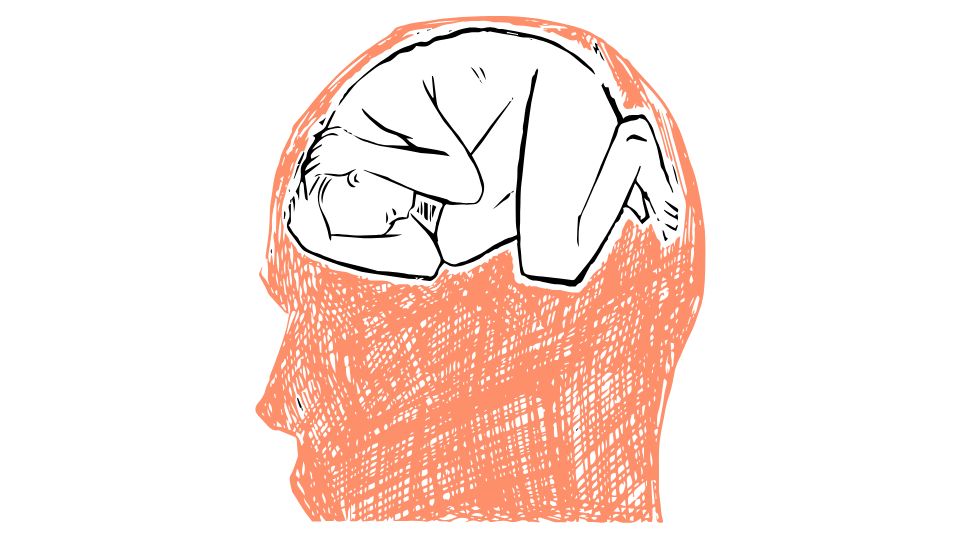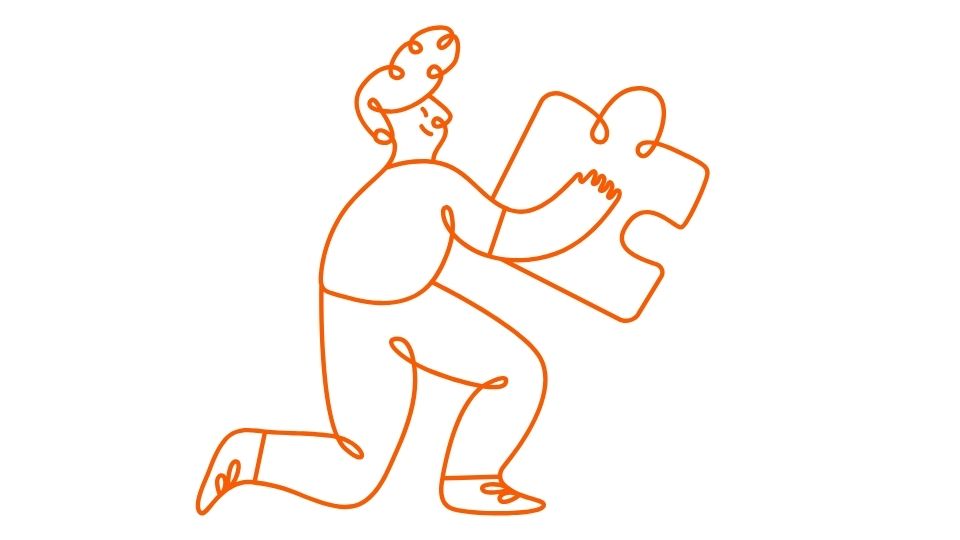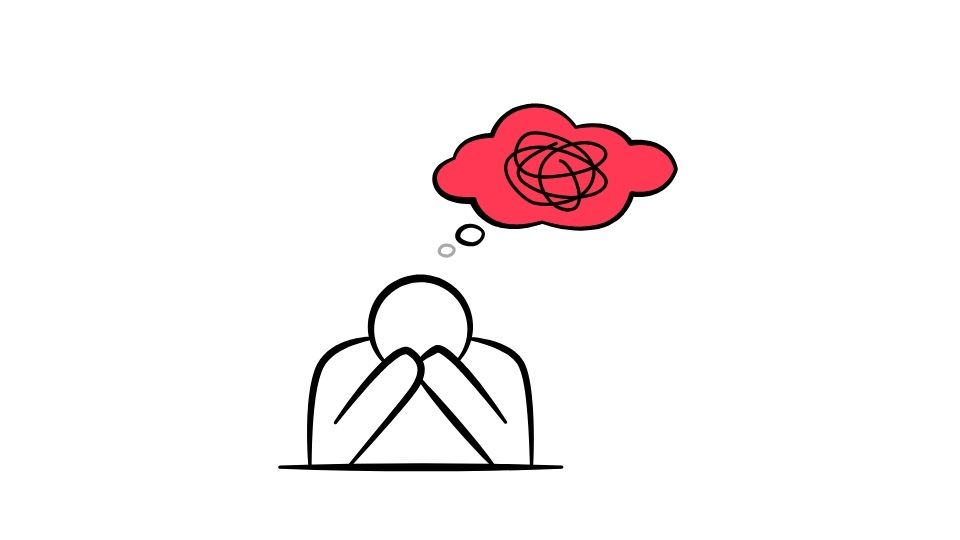Your brain isn’t broken, it’s responding to your environment.
Ever feel like your anxiety, depression, or mental health struggles are just a result of “bad genes” or “faulty brain chemistry”?
Well, I’ve got news for you – your mental health isn’t determined by any ONE thing. It’s actually shaped by a complex mix of factors from your biology to your bank account, your childhood to your current sleep schedule.
In this post, I’ll break down what actually influences your mental well-being (hint: it’s not just “chemical imbalances”), and what you can do about it that doesn’t involve popping pills or blaming yourself.

The 7 Factors That Shape Your Mental Health
Mental health isn’t a mystery – it’s a product of interconnected factors that work together to either support or undermine your well-being. Let’s dive in.
1. Biology & Brain Stuff (But Not How You Think)

Yes, genetics and biology matter – but not in the oversimplified way many think.
Your genetic makeup creates predispositions, not predeterminations. Think of it as loading the gun, but not pulling the trigger.
Research shows that while certain genes are associated with mental health conditions, their expression depends largely on your environment and experiences.
One Harvard study found that supportive relationships can actually change how genes express themselves, potentially neutralizing genetic risks.
And that whole “chemical imbalance” theory of depression? It’s been largely debunked. Serotonin levels alone don’t explain depression – it’s way more complicated than that.
2. The Circumstances of Your Life Matter (A LOT)
Your mental health doesn’t exist in a vacuum – it’s directly tied to your living conditions:
- Financial stability: Chronic money stress wears down even the strongest minds over time
- Housing security: Try maintaining good mental health when you don’t know if you’ll have a roof over your head next month
- Neighborhood safety: Living in high-crime areas keeps your nervous system in constant fight-or-flight mode
- Access to healthcare: Can’t afford therapy? That’s not a personal failure – it’s a systemic issue
One groundbreaking study showed that growing up in high-poverty neighborhoods damages mental health beyond just individual poverty effects. The environment literally gets under your skin.
And for many Americans, financial stress is the #1 reported cause of poor mental health. That’s not a personal weakness – that’s living in a system that prioritizes profits over people.
3. Trauma Changes Your Brain (But You Can Change It Back)

Trauma isn’t just “bad stuff that happened” – it physically reshapes your nervous system.
Whether it’s a single catastrophic event or ongoing conditions like childhood neglect, bullying, or discrimination, trauma fundamentally alters how your brain processes threats and safety.
The good news? Your brain is plastic – it can heal and rewire itself with the right support. This is where therapies like EMDR, somatic experiencing, and even good old-fashioned talk therapy can make dramatic differences.
4. Your Daily Habits Are Mental Health Medicine
The boring, unglamorous stuff makes a massive difference:
- What you eat: The gut-brain connection is real, folks. Highly processed foods increase inflammation which has been linked to depression
- How you move: Regular physical activity is as effective as medication for mild to moderate depression
- Sleep quality: Even one night of poor sleep can tank your mood and stress resilience
- Stress management: Chronic stress literally shrinks parts of your brain related to emotional regulation
I’m not saying you can “lifestyle your way” out of serious mental health conditions, but these foundations matter tremendously for everyone’s mental well-being.
5. Your Age, Gender & Cultural Background Create Unique Challenges

Different demographics face different mental health landscapes:
- Teenagers and young adults are experiencing skyrocketing rates of anxiety and depression (hello, social media and climate anxiety)
- Women report higher rates of depression and anxiety while men have higher rates of substance use disorders and suicide
- Cultural beliefs shape how mental illness is understood, experienced, and treated
These aren’t just interesting statistics – they’re crucial contexts that shape how mental health plays out in real people’s lives.
6. Money Buys Mental Healthcare (And That’s a Problem)
Let’s be real: economic barriers are keeping millions from getting help.
High out-of-pocket costs, inadequate insurance coverage, and transportation issues create a mental healthcare system that works primarily for the privileged.
When 60% of US counties don’t have a single practicing psychiatrist, we’re not dealing with individual failures – we’re facing a broken system.
7. Technology Is Changing the Game (For Better and Worse)
Digital mental health tools are making support more accessible than ever before, with evidence showing many online interventions can be as effective as in-person therapy for certain conditions.
But technology is a double-edged sword. The same smartphones that can deliver therapy apps are also driving social comparison, sleep disruption, and attention problems that undermine mental well-being.
What You Can Actually Do About It
Now that we understand what shapes mental health, what can we actually do about it?
For Your Body-Brain Connection:
- Feed your brain: Prioritize whole foods, healthy fats, and plenty of vegetables
- Move daily: Even a 10-minute walk helps regulate stress hormones
- Fix your sleep: Create a consistent bedtime routine and limit screens before bed
For Your Environment:
- Build community: Strong social connections are literally lifesaving
- Get political: Support policies that address poverty, healthcare access, and social inequality
- Adjust expectations: Recognize when your struggles are responses to genuine hardships, not personal failures
For Your Mind:
- Learn emotional skills: Practices like mindfulness meditation build the brain’s ability to regulate emotions
- Consider therapy: It’s not just for crisis – it’s for building skills and processing life
- Reduce shame: Mental health struggles aren’t moral failings or character flaws
The Bottom Line

Your mental health exists at the intersection of your biology, your personal choices, and the systems you live within. It’s neither “all in your head” nor completely out of your control.
By understanding the true determinants of mental well-being, we can stop blaming ourselves for struggling in difficult circumstances while also taking meaningful action where we do have influence.
And remember – improving mental health isn’t just about fixing what’s broken. It’s about creating conditions where people can truly thrive.




Leave a Reply